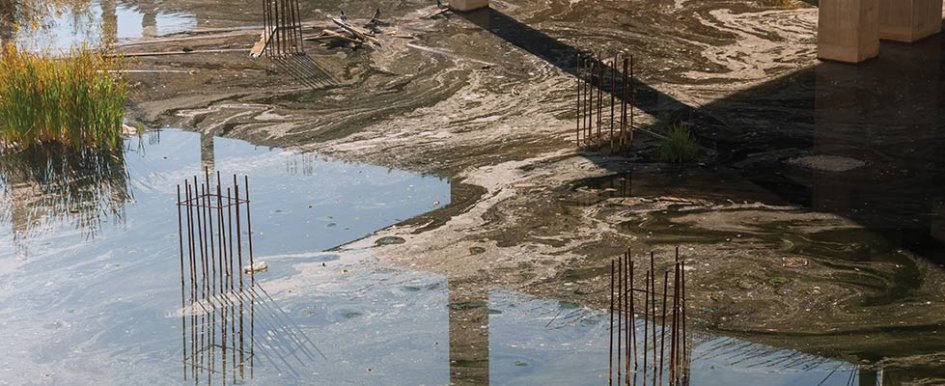
The impact of inefficient and ineffective water management on construction projects is increasing at an alarming rate. Water damage has long been one of the most common insurance claims in the industry, and it now accounts for up to one-third of all payouts on builder’s risk policies. The cost of those payouts has been rising steeply for several years, and insurers have consequently taken severe steps to mitigate their risks. Therefore, deductibles related to water damage on jobsites can reach $1 million or more on large projects.
The construction industry used to regard water loss and damage as an unavoidable inconvenience. Until recently, few solutions were available for monitoring water supplies on-site. The existing monitoring applications were blunt and did little to mitigate risk over the long term. Some of those old-fashioned technologies, such as floor-based leak sensors, are still in use.
As risk and exposure rise for contractors and insurers alike, this approach is no longer viable. General contractors, project developers and operational building management companies must find new and innovative strategies for mitigating water-related risks and reducing costs in order to remain competitive.
Over the last several years, new technology has provided effective solutions in water management for construction sites and large commercial buildings. Many of these can be installed during the construction phase and will continue to operate throughout the building’s life cycle — protecting from damage and saving on water waste. These advanced systems use artificial intelligence (AI), data analysis and machine learning to identify anomalies, leaks and waste at their source. They provide real-time alerts to construction and facility managers in the case of unusual activity and will even shut off water supplies when necessary.
Applying cutting-edge AI-powered technology can:
- Monitor water-use patterns on the site.
- Detect leaks at the source before the damage has spread.
- Automatically stop the water flow.
- Issue real-time alerts across multiple communication channels.
- Identify the exact location of the leak.
- Allow shut-off of a specific valve from a remote location.
- Use reliable backup energy supplies to operate before electrical infrastructure is installed or in the case of a power outage.
It’s a cost-effective way to reduce the risk of major property damage from burst pipes and undetected leaks that can turn into floods, meaning insurers pay out less money in the long run, and contractors or property managers can drastically cut the cost of repairing the damage as well as downtime caused by addressing these risks, thus gaining more affordable insurance coverage.
More and more general contractors are showing impressive results with today’s advanced water management technology. Solutions like these have a significant impact on water costs and reduce the number of water-related delays and claims on
a project.
For example, one large multinational general contractor has nearly eliminated water damage across its portfolio using an AI-powered technology system. After three years of consistent use, the company has not filed a single water-related insurance claim and reports a major reduction in project overhead and overall water consumption.
The successful application of AI-based water management technology has opened endless possibilities for further development. In order to urge their customers throughout the construction industry to adopt risk-management solutions, insurers are developing financial instruments and incentives. One global carrier now offers a groundbreaking warranty initiative, in partnership with a technology provider, that protects general contractors and developers from the steeply rising costs of water damage in the construction industry. In the event the partner system fails to prevent water leak damage, the insurer will reimburse the deductible cost of resulting water damage up to $250,000, therefore significantly reducing or even eliminating the exposure to high deductibles that are very common in the market.
Innovative water management solutions are capable of delivering immediate, meaningful results throughout the built ecosystem. By transforming how contractors and other built professionals manage an unmanaged natural resource, these systems empower a variety of industries to reduce waste and risk while elevating the experience and satisfaction of customers. In today’s business environment, advanced water management technology must be considered an essential element of any strategy to manage and mitigate risks.
